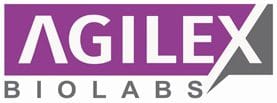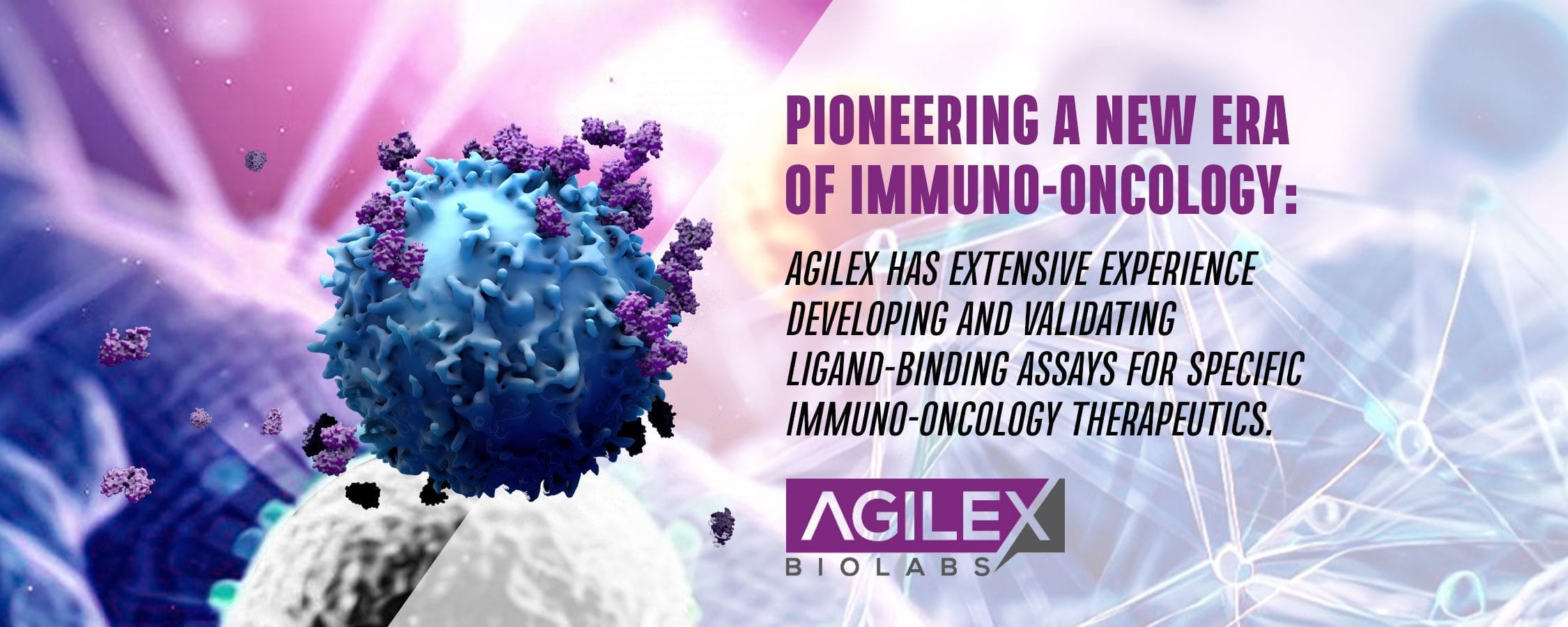Agilex has extensive experience developing and validating like-binding assays for specific immune-oncology therapeutics.
From ancient Egypt to the early 19th century, there have been multiple anecdotal reports of tumors disappearing spontaneously; these typically occurred after an infection with a concomitant high fever. As early as 1863, Rudolf Virchow, a German pathologist, began investigating the connection between tumors and inflammation. Working in his lab, Virchow observed that neoplastic tissues were often decorated with leukocytes of the immune system.
However, since the dawn of the new millennium, the field of immuno-oncology has made exponential strides in its overall efficacy as a form of cancer treatment. Unsurprisingly, Agilex Biolabs has been at the forefront of this critical research, consistently providing key scientific support to enable clients in the drug development arena to make groundbreaking contributions to the field.
Nearly 50 years ago, statin inhibitors, which control tumor function and the regulation of those pathways, provided the key to immunotherapeutic drugs. Interferon Alpha was one of the first immunotherapeutic drugs approved by the FDA for clinical use in cancer. The effect was one of inhibiting cell function, cell division, or cell proliferation. However, many of these early drugs had a non-specific effect, meaning they would inhibit cell proliferation in a global manner. They most often took out healthy cells as they destroyed cancerous ones.
Over the years, thankfully, immuno-oncology therapeutics have become more refined and targeted. They’ve moved to monoclonal antibodies which are targeted against specific cell-surface proteins. Simply stated, they attack cancer cells without damage to healthy body tissue.
These past two decades, in particular, there has been a major shift in the traditional approach to systemic anticancer therapy. Cytotoxic chemotherapy consisted of chemicals that targeted any dividing cell, including healthy ones. In contrast, immuno-oncology earns its success by using the body’s immune system to specifically eliminate cancer cells. Since immuno-oncology’s inception, researchers have worked to identify the many complex signaling pathways and targets. This has led to the development of various immunotherapy agents that modulate the immune response to cancer.
Today, there are numerous FDA-approved immunotherapies available, including checkpoint inhibitors. The field has gone from using something of a generic approach to developing new treatments that include more customized and individualized methodologies. Clearly, immuno-oncology has moved from a theoretical concept to a successful clinical treatment for cancer patients through developments in identifying targets in the immune system.
For their part, researchers at Agilex Biolabs have been at the forefront of these new techonologies in cell gene therapy, developing assays for novel drugs for targeted immuno-oncology diseases. Additionally, immunomodulator therapies, including what could be described as self-targeted immuno-oncology programs, have increased considerably over the last decade. As drug development has increased over the last sort of decade in this area, Agilex has seen a concomitant change in the type of technologies that we use for developing and validating assays.
Agilex now has extensive experience developing and validating ligand binding assays for specific immuno-oncology therapeutics. Some of these might target cell-surface receptors on immune cells or cancer cells. These might include bispecific antibodies which have a dual mode of action, targeting the immune cell population but also a cell within the cancer population within the tumor itself.
At Agilex, our choice of platform depends largely on the molecule itself. If it’s a small-molecule drug that targets the intracellular signal transduction pathway – for example, modulated to inhibit tumor progression – Agilex scientists might use liquid chromatography mass spectrometry. Our experts might use a ligand binding assay if it’s a larger peptide, a monoclonal antibody, or a bispecific or antibody-drug conjugate. Generally, with the fusion of both a small and large molecule with a chemical linker, our researchers might use both platforms. The choice of platform is always driven by the drug.
With development funding at a premium, project sponsors rightly ask whether the developed drug is actually having the desired effect. At Agilex, we’re curious about this as well. Is the drug modulating a cell population? Is it modulating the immune function? Questions such as these inform every step of the development process.
The scientists at Agilex can perform a variety of pharmacodynamic assays. These techniques allow us to elaborate on specific immune cell populations present within the patient. Our researchers can then determine how the drug actually functions in these populations. Is the drug activating specific pathways within the cell? Is it causing cells to proliferate? Flow cytometry becomes a powerful tool for our team to determine overall efficacy.
With well over two decades of experience, Agilex has intentionally moved into a new era of immuno-oncology through its ongoing acquisition of scientific expertise and state-of-the-art technology. These strategic investments have allowed Agilex to approach projects with flexibility and agility, delivering solutions that are both on point and on time. Our clients are often looking for a lab that’s with a track record of being able to develop new projects (or rescue stalled ones) within constrained timeframes ahead of a clinical trial.
In today’s clinical trial landscape, most clients are looking for “a one-stop shop.” Project sponsors have grown increasingly averse to splitting their programs across multiple labs. Agilex scientists are by far our greatest asset. Our teams stay abreast of cutting-edge technology and research by attending immuno-oncology conferences and events around the world. Our researchers are comprised of scientists that stand at the forefront of the latest technologies and techniques. Equipped with the latest information, instrumentation, and innovations, our people have the breadth of experience necessary to solve complicated problems, rescue complex projects from other labs, and develop customized assays.
PROJECT EXAMPLES (Agilex Staff)
Having the expertise and facilities to develop workable assays is one thing. Rescuing stalled projects is a high-value commodity. But combining those strengths with a proven ability to deliver those assays on time puts Agilex Laboratories ahead of its competitors. In 2023, Agilex is perfectly poised to lead out in this new era as a science-first, science-driven bioanalytical company. Contact one of our project specialists today to discuss your company’s needs, timeline, and desired outcomes.
To learn more about conducting your drug development program in Australia or about Agilex Biolabs, contact our experts today.



